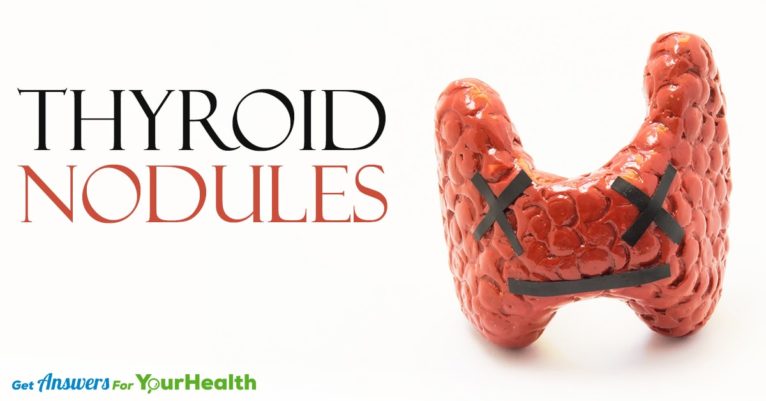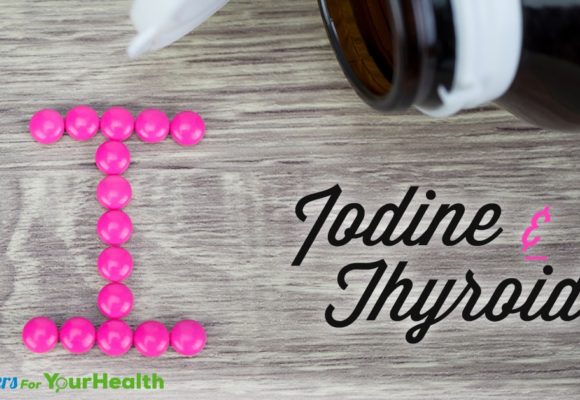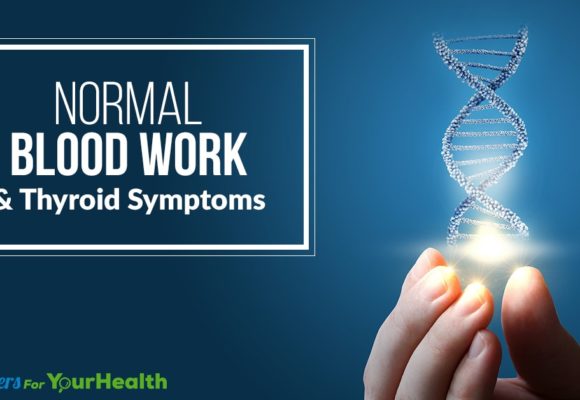1) Grab a FREE copy (Value $14.95) of one of my books Thyroid Symptom Overload
Just pay shipping $7.95 for any US orders. Or, if you want to pay full price plus shipping, order from Amazon :)
2) Take our Thyroid Quiz today and find out what "Thyroid Type" you have
This quiz will help you quickly discover where your symptoms are stemming from.
3) Join Our Thyroid Advocate Membership Site - Natural Thyroid Academy
FREE for a limited time. No credit card required.
4) Work with me and my team privately
Schedule your FREE 15 minute phone consultation and we can find out the best way to help you specifically.
Did your doctor diagnose you with thyroid nodules and now you are worried? Here’s the good news for you, nodules are the safest form of abnormal cell growth. In almost 90% of the cases, it’s nothing to be worried about. But before you take a sigh of relief, keep in mind that 10% is still remaining. Let’s see in what cases thyroid nodules can be a concern and what you can do about them!
Thyroid Nodules:
A diagnosis of thyroid nodules makes people terrified as people take nodules as an alternative term for cancer. Although, it is possible for a nodule to be cancerous, it is an assurance that not all of them are. Thyroid nodules are raised areas of tissues in an otherwise normal thyroid gland. They can arise as a result of hyperplasia (cells proliferation) or neoplasm (abnormal cell growth). However, most of the neoplasms are benign (noncancerous) and it is only a small percentage of neoplasm that is cancerous. As far as prevalence is cornered, thyroid nodules are more common in women than in men with a 3:1 ratio.
Relieving Facts About Thyroid Nodules:
Thyroid nodules are very common. In fact, above the age of 50, one half of the population has thyroid nodules. For your stress to be relieved even more, you should know that in the majority of the cases, nodules are silent and they don’t pose any threat. This is the reason they are diagnosed often times accidently during a routine checkup of the neck or from an X-ray done for some other reason. Another appeasing fact is that almost 95% of thyroid nodules are benign (non-cancerous).
What Causes Thyroid Nodules?
Although thyroid nodules are very common, it is not fully understood what causes thyroid nodules. It is proposed that iodine deficiency and thyroid disorders may cause thyroid nodules to grow. The nodules can also develop due to chronic inflammation as seen in goiter. An enlarged thyroid (goiter) is made up of multiple nodes, known as multinodular goiter.
Symptoms Associated With Thyroid Nodules:
In most common situations, thyroid nodules are nothing more than a small to medium sized overgrowth. Therefore, a majority of thyroid nodules don’t produce symptoms. However, in a few cases, thyroid nodules grow to a size big enough to cause signs and symptoms.
- Physical Signs:
If a nodule grows to a bigger size, it can be felt as a lump in the neck. Sometimes it can also be seen as a swelling on the front of the base of the neck.
- Compression Of Nearby Structures:
Due to the large size of some thyroid nodules, they can compress nearby structures. The trachea (windpipe) and esophagus (food pipe) are in close proximity to thyroid gland. If thyroid nodules compress the trachea, they can cause shortness of breath or dyspnea. However, if the esophagus is compressed by thyroid nodules, swallowing becomes difficult.
- Excessive Production Of Thyroid Hormones:
In some cases, thyroid nodules cause excessive thyroid hormone production. The elevated thyroid hormone level gives symptoms of hyperthyroidism. The most common are rapid heartbeat, palpitation, flushing of face, anxiety, mood swings, sweating, weight loss and sometimes tremors too.
- Association Of Hashimoto’s Disease:
It thyroid nodules are caused due to Hashimoto’s disease or iodine deficiency, it can give the symptoms of hypothyroidism. You may feel fatigued, intolerant to cold, decreased heartbeat and may experience an unexplained weight gain.
When Do Thyroid Nodules Pose A Problem:
Generally, thyroid nodules are nothing to be worried of. The majority of nodules don’t even require any treatment as they don’t cause any problem. But sometimes, thyroid nodules increase up to a size that is a matter of concern. Here is the list to check when it is a matter of problem and you need to see your primary physician.
- If thyroid nodules produce symptoms of shortness of breath or difficulty swallowing.
- If thyroid nodules are causing overproduction of thyroid hormones.
- If thyroid nodules are cancerous.
Risk Factors For Thyroid Nodules To Be Cancerous:
The risk factors associated with the development of cancerous thyroid nodules are:
- Gender: Thyroid nodules are more common in women than men. But chances of them being cancerous increases if you are a man.
- Age: Being younger than age 20 and older than age 70 is linked with increased chances of cancerous nodules.
- Family history: If you have a family history of thyroid cancer.
- Exposure to radiation: If you have a history of radiation exposure to the head or neck region.
Evaluation Of Thyroid Nodules:
The following tests are normally done to evaluate thyroid nodules.
- Blood Tests:
In blood tests, normal concentration of thyroid hormones are examined. Even when thyroid nodules become quite large, the thyroid can still function is normally. Thyroid nodules rarely cause an increase production of thyroid hormones. If this is the case, thyroid nodules can be removed to help.
- Ultrasound:
Ultrasound can also be used to evaluate thyroid nodules. It is essential to do an ultrasound of lymph nodes of the neck as well because it gives more accurate results than doing just an ultrasound of thyroid gland alone. This is because cancerous cells tend to move to nearby lymph nodes. So, ultrasound analysis of the lymph nodes gives valuable information about the possibility of thyroid cancer.
- Fine Needle Biopsy:
In this procedure, a fine needle is inserted in the organ and a sample is collected. The sample is sent to laboratory to evaluate it. It helps to make an accurate diagnosis and to rule out cancer. It is the most reliable method to distinguish benign from suspicious or malignant nodules (Castro and Gharib, Mar-Apr, 2003).
Thyroid Nodules Treatment:
As thyroid nodules do not pose any threat, they are generally not treated. The benign (non-cancerous) nodules can be monitored for long periods of time. But as soon as thyroid nodules grow in size large enough to cause symptoms of hyperthyroidism, anti-thyroid medications and radioactive iodine therapy can be used as a treatment.
Surgery is usually necessary only in cases where large sized nodules are compressing other structures or if nodules are diagnosed as cancerous. After the surgery, radioactive iodine is used as a treatment to destroy overgrown thyroid cells. However, if the whole thyroid gland is surgically removed, you’ll need to take thyroid medications from your medical doctor for the rest of your life.
Conclusion:
Thyroid nodules are overgrowth cells in the thyroid gland. They are very common and generally do not cause any problem. 95% of thyroid nodules are benign in nature, that means they do not cause cancer. Only a small percentage of thyroid nodules are cancerous and they need to be surgically removed. The most common reason to get nodules in the United States is due to autoimmune thyroid, aka Hashimoto’s Thyroid.
References:
https://www.cancer.org/cancer/thyroid-cancer/about/what-is-thyroid-cancer.html
https://www.thyroid.org/wp-content/uploads/patients/brochures/Nodules_brochure.pdf
https://medlineplus.gov/ency/article/007265.htm
https://www.endocrineweb.com/conditions/thyroid/thyroid-nodules
https://www.thyroid.org/thyroid-nodules/
https://www.ncbi.nlm.nih.gov/pubmed/12917075/
https://health.clevelandclinic.org/2015/09/thyroid-nodule-4-reasons-lump-neck-require-treatment/
https://my.clevelandclinic.org/health/articles/thyroid-nodules
http://www.webmd.com/women/tc/thyroid-nodules-treatment-overview#1








